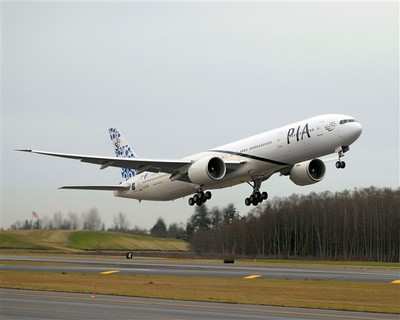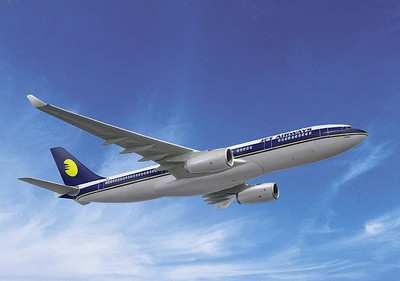Sat, Feb 17, 2007
Advertisement
More News
 ANN's Daily Aero-Term (05.29.25): Terminal Radar Service Area
ANN's Daily Aero-Term (05.29.25): Terminal Radar Service Area
Terminal Radar Service Area Airspace surrounding designated airports wherein ATC provides radar vectoring, sequencing, and separation on a full-time basis for all IFR and participa>[...]
 ANN's Daily Aero-Term (05.30.25): Very High Frequency (VHF)
ANN's Daily Aero-Term (05.30.25): Very High Frequency (VHF)
Very High Frequency (VHF) The frequency band between 30 and 300 MHz. Portions of this band, 108 to 118 MHz, are used for certain NAVAIDs; 118 to 136 MHz are used for civil air/grou>[...]
 Aero-News: Quote of the Day (05.30.25)
Aero-News: Quote of the Day (05.30.25)
“From approximately November 2021 through January 2022, Britton-Harr, acting on behalf of AeroVanti, entered into lease-purchase agreements for five Piaggio-manufactured airc>[...]
 Airborne 05.23.25: Global 8000, Qatar B747 Accepted, Aviation Merit Badge
Airborne 05.23.25: Global 8000, Qatar B747 Accepted, Aviation Merit Badge
Also: Virtual FLRAA Prototype, IFR-Capable Autonomous A/C, NS-32 Crew, Golden Dome Missile Defense Bombardier announced that the first production Global 8000 successfully completed>[...]
 ANN's Daily Aero-Linx (05.30.25)
ANN's Daily Aero-Linx (05.30.25)
Aero Linx: The 1-26 Association (Schweizer) The Association’s goal is to foster the helpfulness, the camaraderie, and the opportunity for head-to-head competition that is fou>[...]
blog comments powered by Disqus





